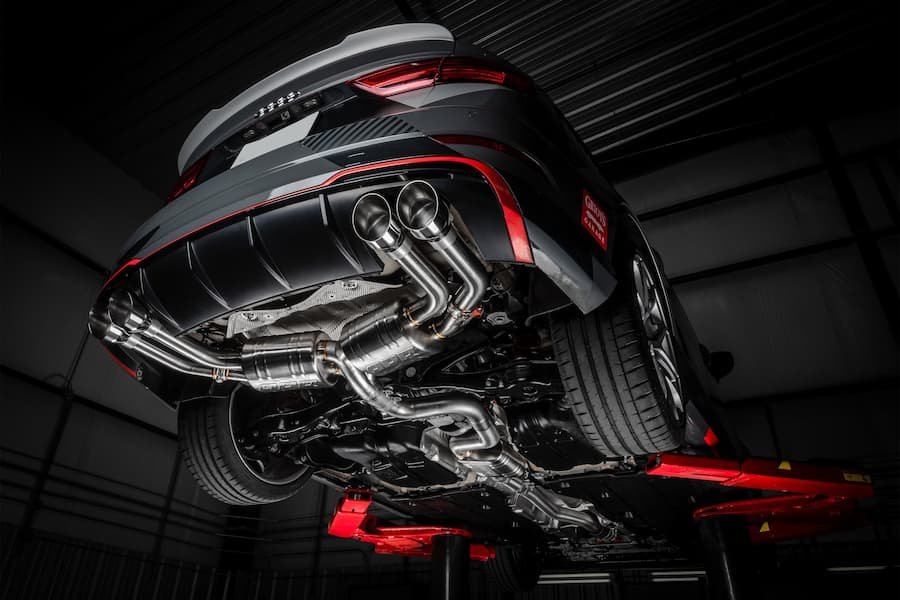Introduction
The whole fuel economy of a vehicle depends critically on how its exhaust system is designed. One of the key parts of an internal combustion engine, the exhaust system helps to divert exhaust gasses away from the engine, therefore lowering pollutants and boosting engine performance. This article explores the technical aspects and pragmatic consequences of several design features, therefore addressing the several ways in which exhaust system design influences fuel efficacy.
Exhaust System Design Impacts on Fuel Efficiency
Exhaust Manifold Design and Its Impact on Engine Performance
Collecting exhaust gasses from the engine cylinders, the exhaust manifold sends them into the remainder of the exhaust. Fuel economy and engine performance are substantially affected by its design. A well-designed manifold lets the engine burn exhaust gasses more effectively by improving their flow, hence lowering back pressure. By reducing the energy needed to drive exhaust gasses out of the engine, this drop in back pressure can result in better engine performance and fuel economy. Toyota Celica exhaust design is best in this regard.
Catalytic Converter Efficiency and Its Role in Fuel Economy
An essential part that transforms exhaust gasses into less dangerous molecules thereby lowering hazardous emissions is the catalytic converter. Fuel economy relies much on its design and efficiency. A properly operating catalytic converter guarantees full combustion of gasoline, therefore lowering the quantity of unburned fuel released as exhaust emissions. Modern catalytic converters help to improve fuel economy and reduce emissions by being more efficient and able to function throughout a range of running situations.
Muffler Design: Balancing Noise Reduction and Performance
Although its design can also affect fuel economy, the muffler is meant to cut engine noise. Although the muffler’s main purpose is to reduce noise, interior design might influence exhaust flow. Back pressure can be raised by a limited muffler, therefore lowering engine performance and fuel economy. On the other hand, a well-designed muffler lets exhaust flow more smoothly, therefore maximizing fuel economy without sacrificing noise control.
Exhaust Pipe Diameter and Flow Dynamics
The flow of exhaust gasses and, thus, fuel economy depends on the exhaust pipe diameter and routing. Too narrow exhaust pipes might cause too high back pressure, which drives the engine to run harder and could lower fuel economy. On the other side, too big pipes could cause exhaust gas velocity to drop, therefore compromising performance. To balance exhaust flow and engine performance, the ideal pipe size is absolutely vital, thereby improving fuel economy.
The Impact of Exhaust System Materials on Performance
The components of the exhaust could influence its performance as well as durability. Premium materials, including stainless steel, can withstand corrosion and overtime preserve the exhaust system’s performance. Damage or corrosion of the exhaust could cause leaks or decreased performance, therefore affecting fuel economy. Maintaining ideal performance and fuel economy so depends on the materials used in exhaust system design.
Read more: https://classroom6x.co.uk/electric-bike-battery-manufacturer-powering-the-future-of-urban-mobility/
Turbocharging and Exhaust System Integration
One way to greatly improve engine performance and fuel economy is by turbocharging. The exhaust system’s design has to be in line with turbocharging so that exhaust gasses are effectively directed to the turbocharger. The efficiency of the turbocharger may be raised by a well-integrated exhaust system, therefore improving engine performance and fuel economy. Designing exhaust manifolds and pipes to reduce turbo lag and optimize the advantages of turbocharging is part of proper integration.
Exhaust System Tuning and Its Effect on Fuel Efficiency
Exhaust system tuning is modifying several facets of the exhaust system to maximize performance under particular driving situations. Exhaust manifold modification, muffler design change, or exhaust pipe routing adjustment are part of tuning. Correct tuning guarantees that the exhaust system supports best engine performance, which can result in fuel economy gains. Performance automobiles can employ custom-tuned exhaust systems to reach certain performance targets including improved fuel efficiency.
Advanced Exhaust Technologies: Variable Valve Timing and Aftertreatment Systems
Fuel efficacy may be much improved by advanced exhaust technologies like aftertreatment systems and variable valve timing (VVT). To maximize engine performance under many running circumstances, VVT systems change the timing of valve openings and closings. Through improved combustion and lower exhaust emissions, this can increase the exhaust system’s efficiency. By bettering the control of exhaust gasses and pollutants, aftertreatment systems like diesel particulate filters (DPF) and selective catalytic reduction (SCR) further increase fuel economy.
The Role of Regular Maintenance in Sustaining Fuel Efficiency
Maintaining best fuel economy depends on regular exhaust system maintenance. Components like the muffler and catalytic converter can clog or damage over time, which would lower performance and raise fuel usage. Regular maintenance including component cleaning or replacement guarantees that the exhaust system keeps running effectively. Good maintenance helps to avoid problems that could compromise general vehicle performance and fuel economy.
Conclusion
The fuel efficacy of a vehicle is closely correlated with the exhaust system design. From the exhaust manifold to the muffler and catalytic converter, every element—including those that guarantee effective exhaust flow and best engine performance—is very vital. Improved fuel economy and lower emissions result from advances in exhaust system technology as well as from routine maintenance. Understanding how exhaust system design affects fuel efficiency can help manufacturers and vehicle owners decide how best to improve performance and sustainability. Visit Classroom6x for more informative blogs.
Also Read: How ECU Remapping Improve Engine Performance and Efficiency?





